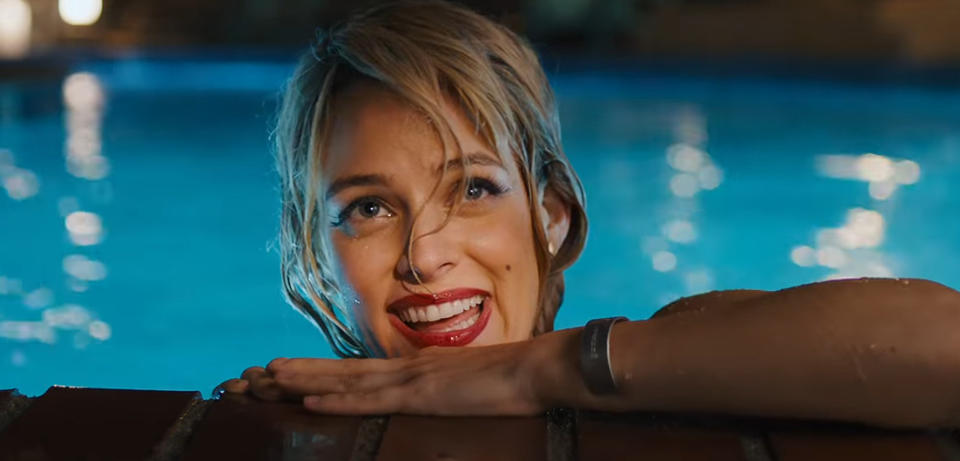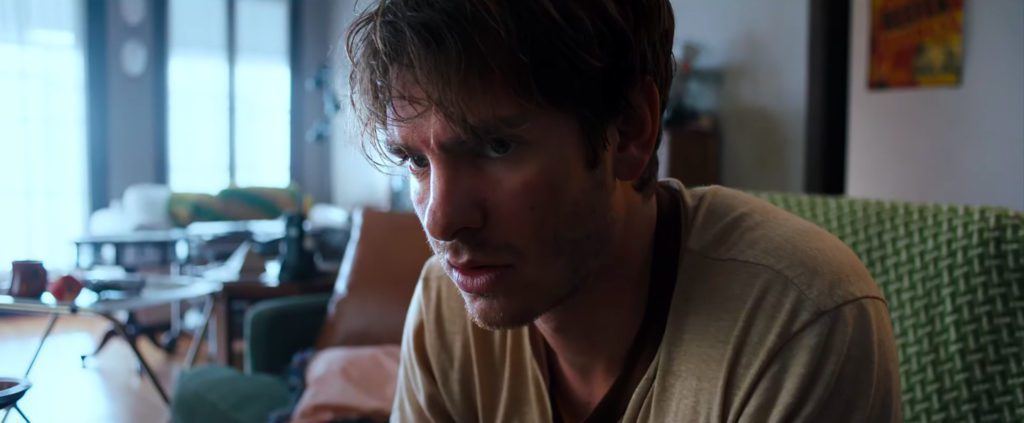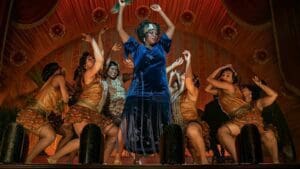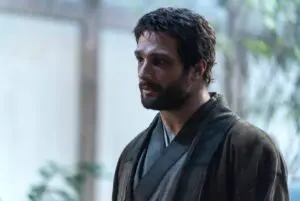Summary
Under The Silver Lake is a dive into Hollywood’s abnormal norm; a self-aware, timely and unapologetic oxymoron of a film wrapped in a City of Angels mystery yarn.
The bland existence of jobless Sam (Andrew Garfield) is interrupted when he spies the mysterious beauty Sarah (Riley Keough) swimming in the communal apartment pool. When she’s declared missing, Sam finds purpose in following clues that don’t belong solely to Sarah. Thus begins a frivolous caper spanning the playground of Los Angeles.
There’s a slightly false facade over the already plastic veneer of Under The Silver Lake. As if the setup is supposed to feel contrived like much of Hollywood’s truisms. David Robert Mitchell’s playful tone knowingly acknowledges its inspirations (any movie set in the City of Angels; especially surreal neo-noir’s like Mulholland Drive) by way of following suit as the detective yarn unravels like a cat is pawing at it. The classical wind and strings score reinforces the Classical Hollywood noir feel that resonates with mystery and intrigue but jars against the aesthetic of the 21st century. This jarring effect, to Mitchell’s prowess, is a finely stitched contrast of the old and new LA.
Sam could be the millennial Patrick Bateman; naturally less driven and more apathetic to his voyeuristic (not murderous) tendencies. His binocular reveries aren’t presented as creepy, though nothing is in Silver Lake. Mitchell, and in many senses, Sam, don’t reveal their own sentiments in any overt way but are tour guides to the world they loathe. Women are often presented as nude objects of sexual desire – the camera tilts down from behind Sam’s shoulder at one point when he checks out a woman’s bum – but this is because Under The Silver Lake is a show of the patriarchal society we live in. This film’s agenda isn’t to perpetuate the view but show it in all its unchecked virility. And Garfield presents this beautifully, humanizing the unlikable Sam enough for us to want to go on this surreal adventure with him.

The presentation of LA’s self-reverence is softly pounded until your nose is bloody, but that’s the point. What is the mythos of a place that continually edits its own scriptures, those they believe are somehow sacred and infinitely interpretable? But then, all mythologies do that, usually through the tendencies of the reader, or in this case, viewer. Mitchell’s script explores these themes with a flexible tone, like a self-aware conspiracy theorist. His direction then translates this script with panache, reveling in LA’s man-made monuments by way of broad geographical plotting.
Mike Gioulakis’ camerawork is frenetic. It pursues Garfield, scanning and panning his droll movements. Zooms hone in on emotions as they reveal themselves, or as the viewer is prompted to peel another layer from a revelation. The camera is rarely still as it wants to emulate all of the tried and tested maneuvers of Hollywood as an homage to filmmakers such as Hitchcock and Lynch.
The modern apathy from young people with an infinite library of information at their fingertips, still wanting more secrets, codes, and subliminal messages is one of the larger themes that Silver Lake explores. The undulating interests of finding meaning in the meaningless or, is it meaninglessness in the meaning, is telling of a generation that desire desire.

The cultural pastiche of passions that this film clambers upon, the reference to the world that created this world, comes to a glorious end where the origins of our (I’m twenty-seven, whatever that means) rebellion are undermined by the cashing in of the older generation zealously gloating at any reason to Trump us. The film loses its way at the midpoint, obsessing too much over hipster chess parties and codes leading to codes, becoming the snake that eats its own tail. But it shockingly regurgitates itself with a new skin as the third act slithers into sight.
Much of the peripheral dialogue hilariously outs the modern craving to find the newest talent (a 12-year-old visionary director/actor), newest clothing (someone commenting on Sam’s pajama t-shirt combo worn to a Hills party as if it’s the freshest fashion) or, the newest controversial opinion (“I don’t like the homeless…”). All of which could be used to garner some reverence in being original. Under The Silver Lake, in its clear homage to the likes of Chinatown, Inherent Vice, et al, isn’t trying to be the originator but more the modern perpetrator of the fallacies of society so often spearheaded in LA. Or so film history wants us to believe.
Under The Silver Lake is a dive into Hollywood’s abnormal norm, its desire to house the money machine that recycles stories, its diverse array of the white avatar, and its ability to intoxicate those who want to consume its kitsch in one bite. Garfield channels a Peter Parker (there’s more than a few references to Spider-Man in comic book and even Pop Vinyl form) who never got bitten by a radioactive spider but who fell from the grace of genius to geniality. Its pretention (this word has been diluted in recent everyday criticism when someone simply doesn’t like an artistic taste) is the point. This, like the equally brilliant Velvet Buzzsaw, attempts to elevate the discussion surrounding art by skewering art within its own acquired idiosyncrasies. You are at arm’s length until you’re pulled in for a hug only for it to cry on your shoulder. This is a self-aware, timely and unapologetic oxymoron of a film wrapped in a City of Angels mystery yarn. It will incite lambast and hyperbole but it honestly doesn’t much care.



